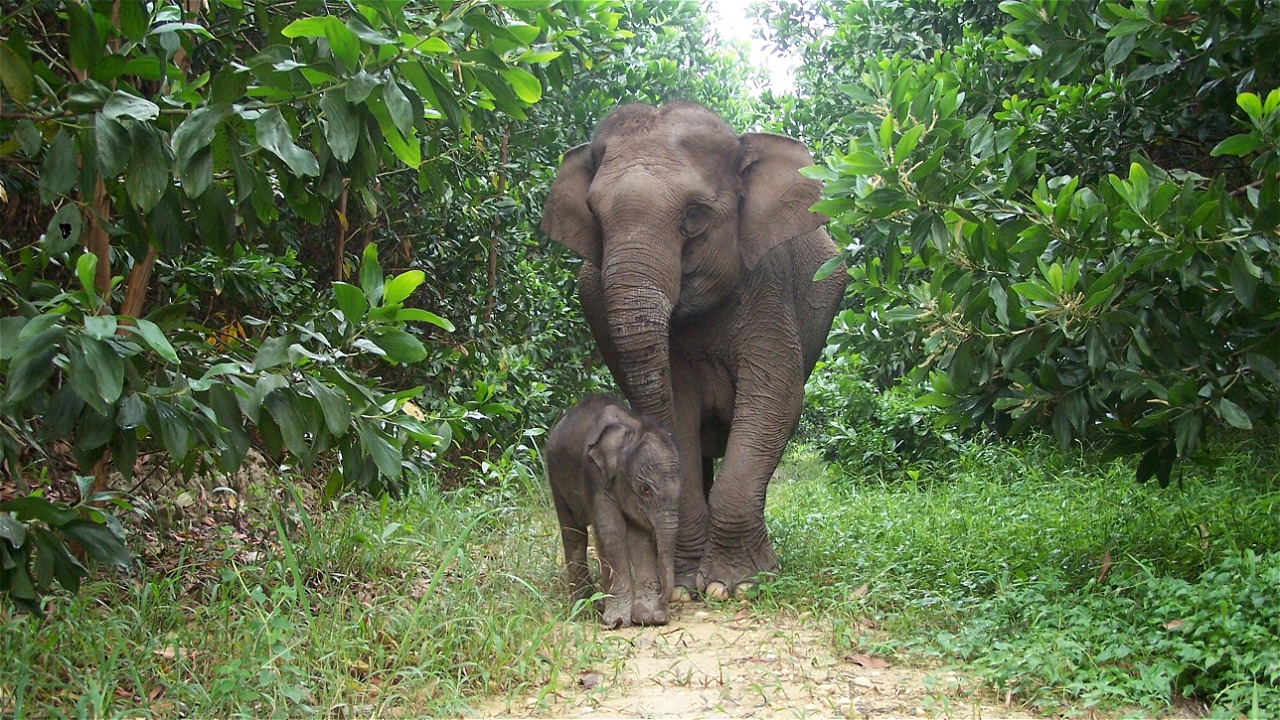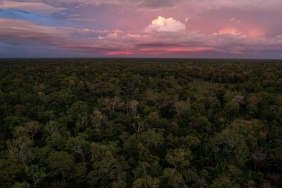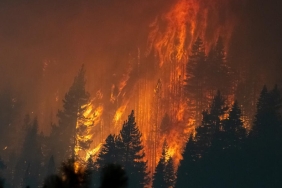REDUCING THE IMPACT OF HUMAN-ELEPHANT CONFLICT IN ACEH
By: Chik Rini (Communication Officer WWF-Indonesia Aceh Program Office)
Since 2015, WWF-Indonesia has been providing assistance to villages experiencing conflict with wild elephants in Aceh. Initially, this was one of WWF's responses after the death of a farmer named Hasan Basri who was attacked by an elephant when he and Tim Eight were herding elephants out of the community's plantation area in Pintu Rime Gayo, Bener Meriah Regency in October 2015.
Team Eight is an elephant-human conflict mitigation team formed by a community initiative led by Suherry, an animal activist in Bener Meriah. They have never received any training or knowledge about elephant herding techniques. Everything was learned through trial and error in the field.
Therefore, WWF-Indonesia through the WWF Flying Squad who came from Riau provided assistance and training on how to safely herd elephants.Team Eight was the first team to be trained by the WWF Flying Squad. They gained new knowledge on how to conduct safe, effective and low-cost elephant herding. Team Eight is now one of the teams relied on by the government in Bener Meriah and Central Aceh to help resolve conflicts with elephants.
Suherry said that the training gave their team a lot of new insights. "Before the training, we chased elephants away by following them wherever they moved. But we didn't pay attention to the elephant's behavior. After this training made by WWF, we know which elephant is a group, which elephant is single. The biggest benefit of this training is that we can avoid accidents. We used to be too close to the elephants, but after this training we know that we have to keep a minimum distance of 50 meters. The important thing from this training is the herding technique and knowing the nature of elephants. We hope our team will gain the trust of the government and the community," he said.
The training does not stop with Team Eight. The ongoing conflict between elephants and humans in Aceh encourages WWF to form more community teams in villages that experience conflict with elephants. Inevitably, the community must be ready and must be able to independently mitigate conflicts with elephants so that the impact of losses such as damage to cultivated plants and casualties can be minimized.
Over the past two years, Syamsuardi and Ruswanto from the Flying Squad have regularly traveled to Aceh to train community groups from village to village. WWF disseminates conflict mitigation practices that have been tested over 20 years by the Flying Squad team, including herding techniques, safe distances, reading elephant behavior, and avoiding unsafe ways of conducting conflict mitigation so that casualties on both sides (humans and elephants) can be avoided.
WWF also trains to make and use low-cost conflict mitigation tools, such as carbide cannons and smoke balls. These low-cost tools can be one of the solutions to replace the use of expensive firecrackers every time an elephant is driven.
Syamsuardi always reminds the principles of elephant herding. "What we do is to build communication with elephants. The cannon is not a tool to scare the elephants. But it is our communication tool with elephants. Hopefully, every elephant that hears the sound of the cannon receives a message to stay away from the sound of the cannon," Syamsuardi explained to the teams he trained.
To date, WWF has distributed 230 units of carbide cannons to community teams. The number of teams trained has reached 300 people consisting of farming communities, Imuem Mukim, Pawang Uteuen, community rangers, members of NGOs and Forums, forest rangers, babinsa (TNI), and binmas (police) in the Peusangan watershed area, Krueng Sabee watershed, and Pidie. In this training, women's groups in the villages also actively took part because they also often encounter elephants when working in the garden.
Currently, training continues to be conducted in villages in the Peusangan watershed, as the intensity of elephant-human conflict is very high in this area. At the initiative of the community, another Team Eight model has now emerged in several places that have been trained. Take the Krueng Sabee Elephant Care Community Forum. They consist of 35 representatives from seven villages, led by Imuem Mukim M Yusuf. In addition, in Bergang and Karang Ampar villages, a number of farmers led by Muslims have also taken the initiative to independently herd elephants that enter the community's plantation area.
WWF provides assistance to strengthen the ability of the team that has been trained. They received further training on techniques to identify elephants through dung and tracks, as well as designing early detection devices and monitoring towers at elephant entrances and exits. It is hoped that these teams at the village level can play a major role as part of the effort to save humans and elephants from the impact of conflicts that are often not handled properly.





